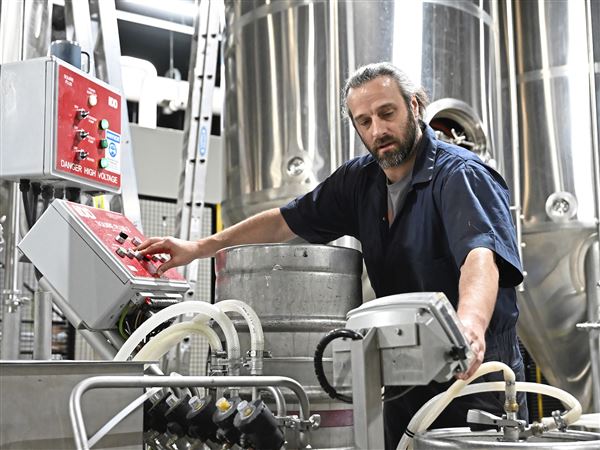WASHINGTON — Environmental Protection Agency Administrator Scott Pruitt appointed more than five dozen new scientific advisers to the agency Friday, a move that is likely to shift the EPA’s research objectives as well as the recommendations that form the basis for key regulations over the next few years.
Mr. Pruitt has placed 66 new experts on three different EPA scientific committees, many of whom hail from industry or state government, and espouse more conservative views than their predecessors. Two of the new chairs — Texas’ top toxicologist Michael Honeycutt, who will helm the Scientific Advisory Board (SAB), and consultant Louis Anthony “Tony” Cox, who will chair the Clean Air Scientific Advisory Committee (CASAC) — have harshly criticized the way the EPA has conducted science in the past.
Mr. Honeycutt has accused the EPA of “overstating” the risks associated with mercury, a neurotoxin, and of disregarding “good science which demonstrates a chemical is not as toxic as it thinks it is.” Mr. Cox wrote that the EPA’s methods for calculating the public health benefits of stricter national smog standards are “unreliable, logically unsound, and inappropriate for drawing causal inferences.”
Under a new policy Mr. Pruitt instituted this week, scientists receiving EPA funding cannot serve as the agency’s advisers. Seven advisers stepped down rather than relinquish their grants, agency officials said, while two opted to forego the federal money in order to continue serving.
Mr. Pruitt’s actions came on the same day the Trump administration published a report on climate change from its own scientists that left no doubt about its grim reality and its causes.
The latest climate report, written by scientists in 13 federal agencies as part of a congressionally mandated National Climate Assessment, does not say anything that hasn’t been said in countless reports over the past decade. Its major conclusions are virtually identical to those of a federal assessment published in 2014: Global warming is real, caused by humans and its impacts are being felt across the United States, from increased heat waves to greater flooding risks along the coasts.
Few observers expect this new report to influence the Trump administration, which has pushed to repeal federal regulations on the greenhouse gases that lead to global warming and whose officials have expressed doubt about the causes of a warming planet.
Clark University economics professor Robert Johnson, who had one year left to serve on the EPA’s Scientific Advisory Board, said in a phone interview he did not want to give up his portion of a nearly $800,000 grant he and his colleagues share with researchers at Virginia Tech and the University of New Hampshire. The project, which has been underway for more than two years, seeks to evaluate how water quality is understood and valued by the public through a case study of river quality in New England.
“The research is too important,” Mr. Johnson said, adding that he is concerned that the litmus test now in place will bar some qualified scientists from helping advise the EPA. “Until recently people serving on the board were the top scientists in their field, and often these are often the people who were funded by federal agencies. So by systematically excluding those scientists, you have effectively knocked out the top scientists, most of them, in many fields.”
Mr. Pruitt said the appointments to the Scientific Advisory Board and its clean air panel, along with the even-larger Board of Scientific Counselors, would bring new perspectives to the agency. He told reporters Tuesday that he was seeking to diversify the groups’ geographic representation, to include more experts from the Midwest and West.
“To ensure that EPA is receiving the best independent scientific advice, I am appointing highly-qualified experts and scientists to these important committees,” he said in a statement.
Several of the new appointees hail from industries that the EPA regulates, including the French oil giant Total, Phillips 66, the utility Southern Co., Dow Chemical and Procter & Gamble. One current executive from the American Chemistry Council industry group, Kimberly White, will join the SAB, while the ACC’s former senior toxicologist, Richard Becker, will serve on BOSC’s Chemical Safety for Sustainability Subcommittee.
ACC’s senior director for advocacy communications Scott Openshaw praised the appointment of Ms. White,Mr. Becker and others, saying Mr. Pruitt’s new directive will “help ensure EPA’s scientific review panels are well balanced with perspectives from qualified scientists of diverse backgrounds and board members . . . free of any disqualifying conflicts of interest.”
The 44-member SAB has two representatives from environmental groups: the Environmental Defense Fund and the ClimateWorks Foundation.
Gretchen Goldman, research director for The Center for Science and Democracy, noted in an email that Mr. Pruitt had “nearly halved the number of university scientists and tripled the number of industry and consulting firm scientists” on the Scientific Advisory Board.
“With the gutting of key science advisory committees this week, the EPA has replaced independent scientists with air pollution conspiracy theorists and industry-tied individuals with direct conflicts of interest,” Ms. Goldman said. “What was previously a committee of scientific all-stars giving freely of their time to provide dispassionate science advice is now dominated by individuals who are less qualified and in some cases openly hostile to the agency’s mission.”
The New York Times contributed
















